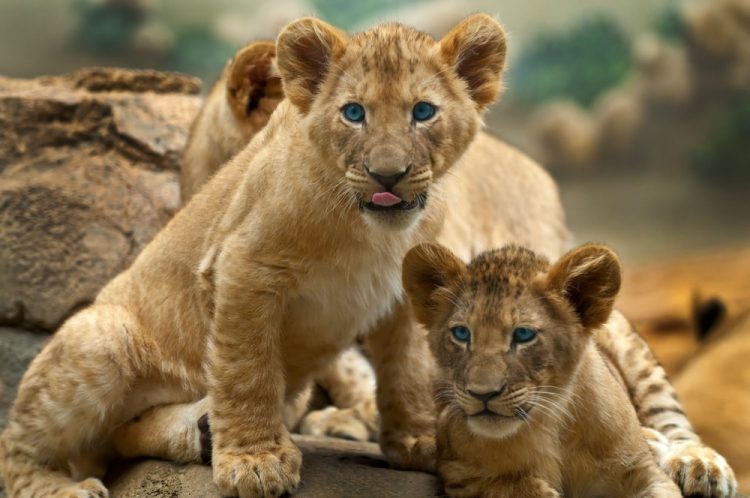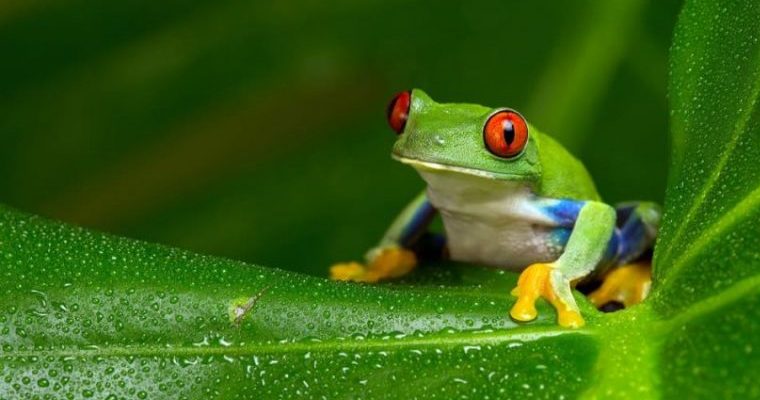Animals can be distinguished according to the mechanisms they use to regulate their body temperature in:
- Warm-blooded animals. They are animals that keep their body temperature constant (regardless of ambient temperature) and regulate it through metabolism. For instance: the camel, the tiger and the monkey.
- Cold blooded animals. They are animals that cannot regulate their body temperature internally, so it varies according to the temperature of the environment. For instance: the frog, the salmon and the manta ray.
Studies in thermophysiology determined that there are not only two categories (cold-blooded animals and warm-blooded animals), for which both concepts are imprecise terms (since not all animals belong entirely to one or the other category) and are in disuse in the field scientific. However, both distinctions continue to be used colloquially in some contexts.
Warm-blooded animals
The warm blooded animals They are those that can maintain a constant body temperature regardless of the climatic variations of the environment. They are usually birds or mammals. Most mammals maintain internal body temperature between 34º and 38º. For instance: the dog, the lion or the human being.
Warm-blooded animals are also known as endotherms. This type of animal can present some variation in the temperature of its body, but this variation is, generally, minimal.
Types of thermoregulation
Warm-blooded animals can use three processes that allow thermoregulation:
- Endothermy. It is the ability of some animals to produce internal heat in their body through shivering, panting or burning fat.
- Homeothermy. It is the ability of some animals to maintain a constant body temperature regardless of the ambient temperature.
- Tachymetabolism. It is the ability of some animals to maintain a high rate of metabolism at rest.
While most warm-blooded animals exhibit all three characteristics of thermoregulation, certain mammals or birds may not exhibit all three, for example, bats or some small birds.
Examples of warm-blooded animals

| Armadillo | Giraffe | Elephant seal |
| Ostrich | Lemur | Sea urchin |
| Whale | Lion | Seal |
| Ox | Leopard | Chicken |
| Owl | Call | Rooster |
| Donkey | Raccoon | Cat |
| Horse | Groundhog | Cheetah |
| Goat | Monkey | Hyena |
| Camel | Walrus | Cougar |
| Beaver | Platypus | Rat |
| Bear | Rhinoceros | |
| Pig | Anteater | Human beings |
| Hummingbird | Sheep | Tapir |
| Rabbit | Woodpecker | Tero |
| mutton | Panther | Tiger |
| Dolphin | Lazy | Cow |
| Elephant | Dog |
Cold blooded animals
The cold blooded animals They are those that cannot internally regulate their body temperature, so their temperature varies depending on the ambient temperature. This term (“cold-blooded animals”) is currently in disuse in the scientific context and instead that of ectothermic animals is used.
Generally, cold-blooded animals are amphibians, insects, fish and reptiles that do not live in environments with very extreme temperature changes. For instance: the lizard, the crocodile or the shark.
Types of thermoregulation
Cold-blooded animals can use three processes that allow thermoregulation:
- Ectothermy. It is the ability of some animals to use external sources to regulate their body temperature.
- Poikilothermia. It is the inability of some animals to regulate their body temperature, so it fluctuates according to that of their immediate environment.
- Bradymetabolism. It is the ability of some animals to vary the speed of their metabolism to regulate their body temperature depending on the food available and the ambient temperature.
Despite this classification, not all cold-blooded animals have all three characteristics of thermoregulation.
Examples of cold-blooded animals

| Wasp | Stingray | Iguana |
| Eel | Fly | Stick insect |
| Spider | Brunette | Killi |
| Herring | Salmon | Lizard |
| Scorpion | Perlon | Lizard |
| Tuna | Angel fish | Locust |
| Catfish | Harlequin fish | Toad |
| Barracuda | Paddlefish | Sardine |
| Seahorse | Lion fish | Snake |
| Alligator | Clownfish | Sea snake |
| Chameleon | Sawfish | Tetra |
| Tent | Piton | Shark |
| Cobra | Frog | Turtle |
| Crocodile | Mockingbird | Snake |
| Croaker | Salamander |
